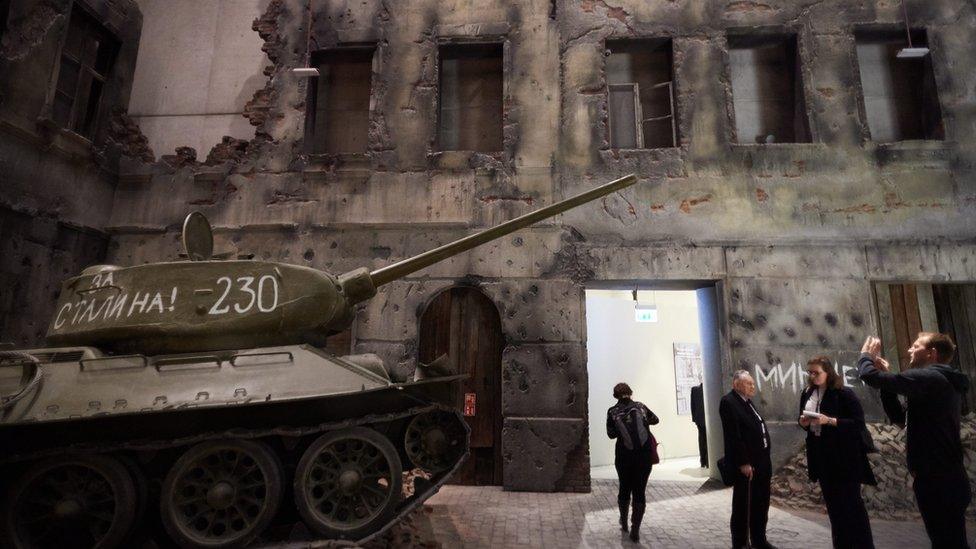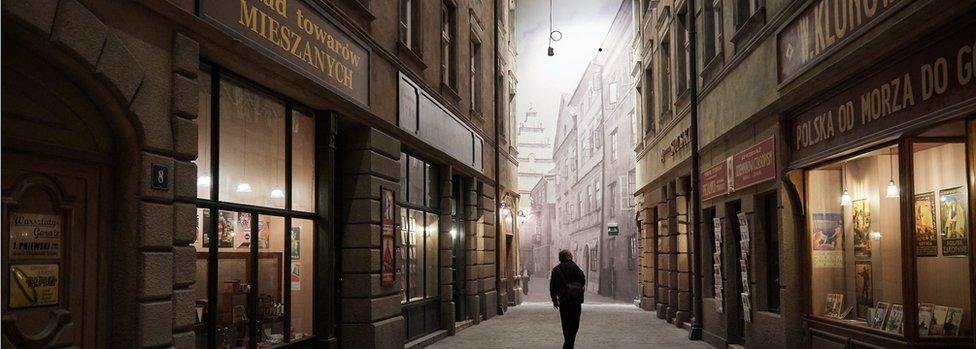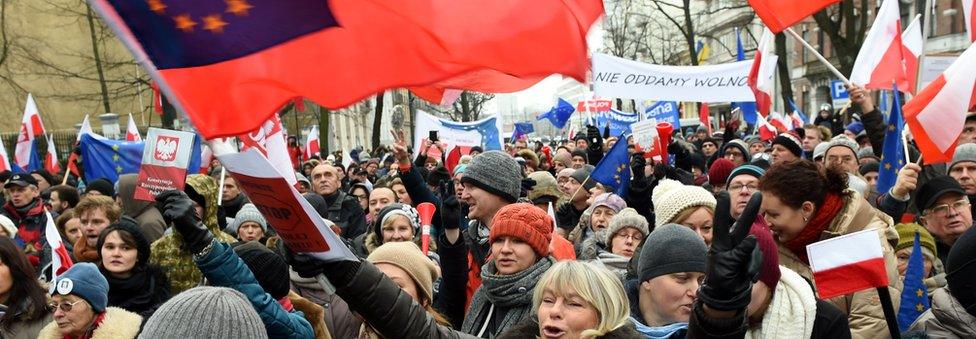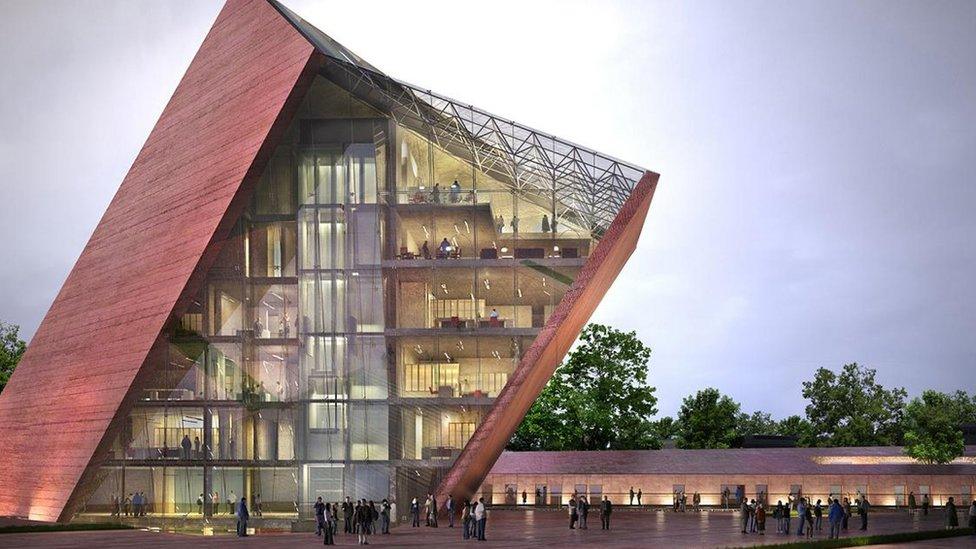Polish government wins standoff over Gdansk war museum
- Published

The museum shows the fate of Poles and other nations in a broad, European context
Poland's nationalist government has won a court ruling that will enable it to take over a brand new World War Two museum and reshape its exhibition to fit a narrower Polish perspective.
The museum in Gdansk presents the events of 1939-45 in a global context.
It does not give a conventional Polish history of the war and begins with the rise of authoritarian regimes in Europe and Japan after World War One.
The museum is due have its official opening by the end of February.
The $12.3m (£9.8m; €11.4m) permanent exhibition, which took eight years to collect, includes an American tank, a Soviet tank and a German rail carriage.
Historian Timothy Snyder was among 400 people who took part in a presentation at the cantilevered glass and cement museum on Monday.
Mr Snyder has criticised the government's plans to change what he describes as "perhaps the most ambitious museum devoted to World War Two in any country".

The museum opened its doors on Monday to allow historians and journalists to see it before the court ruling
The ruling on Tuesday by Warsaw's Supreme Administrative Court means the Museum of the Second World War will be merged with a yet-to-be built museum on 1 February.
Poland's Culture Minister, Piotr Glinski, will then be able to nominate his own director who can change the museum's exhibition to fit the government's needs.
Campaigning on traditional Catholic and patriotic values, Poland's governing Law and Justice (PiS) party was the first to win an outright majority in parliamentary elections in October 2015 and says it has a mandate to introduce sweeping reforms.
It has introduced popular social reforms to expand benefits to families, senior citizens as well as lowering the retirement age.
More stories from Poland:

Poland's nationalist government prompted protests last month when it tried to restrict press reporting in parliament
It has also moved to take firm control of the state broadcaster, civil service and the highest court in the land, the Constitutional Tribunal. The latter move has led the European Commission to launch an unprecedented investigation into a potential serious breach of the rule of law by the government.
Mr Glinski has said that following the merger the museum will concentrate on more Polish aspects of the war including the country's defence against the Nazi invasion in 1939.
Museum director Professor Pawel Machcewicz argues that limiting the exhibition to the defence of Poland would not show the entirety of the Polish experience of the war.
"Historians and museum experts praised the exhibition at the presentation. Timothy Snyder said it was the best way of combining Polish history with general history and explaining it to foreigners," Prof Machcewicz told the BBC.
"The minister didn't come to the exhibition yesterday so he doesn't know what he's talking about. It would be very costly to change the exhibition now so let's hope the minister changes his mind," he added.
The director threatened to sue the culture minister if any changes were made.
"You cannot just take some of the exhibits out, it would be a public scandal," he said.
- Published5 May 2016

- Published17 December 2016
